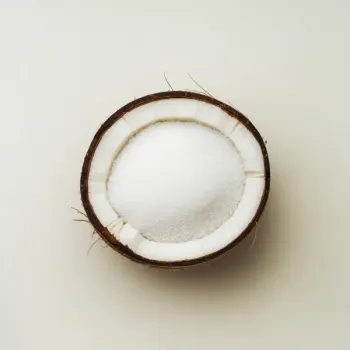


Block
Hardened coconut sugar that can be grated or broken down into smaller pieces, often used in traditional Asian cooking.
Liquid
Coconut sugar that has been dissolved into a syrup, suitable for sweetening beverages or as a liquid sweetener in recipes.
Granulated
Coconut sugar in granulated form, similar to granulated table sugar, commonly used as a direct substitute in recipes.




block coconut sugar: Navitas Organics
liquid coconut sugar: Wholesome Sweeteners
granulated coconut sugar: Big Tree Farms

Baking: Coconut sugar can replace traditional sugars in baking. It's particularly good in recipes where its caramel notes can shine, such as in cookies, cakes, and crumbles. Remember to adjust the liquid ingredients as needed to account for its higher moisture content.
Sweetening: Coconut sugar dissolves well in liquids, making it a good choice for sweetening beverages like coffee, tea, or smoothies. It can also be used to sweeten oatmeal, yogurt, and other breakfast dishes, adding a subtle caramel flavor.
Caramelizing: Coconut sugar can be caramelized by melting it in a heavy-bottomed pan over medium heat until it liquefies and turns a rich brown color. This method is often used to create a flavorful base for sauces and desserts. Due to its lower melting point, it's important to stir frequently and watch carefully to prevent burning.



